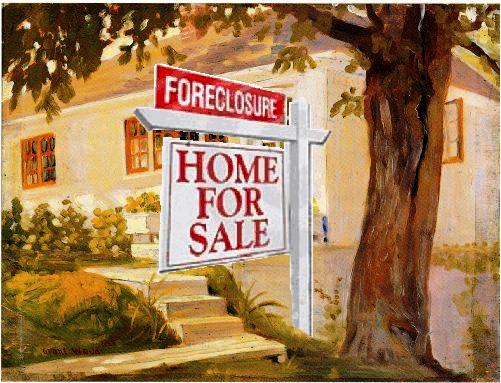December 9, 2014
Resolutions for Homeowners Dealing with Construction Defects
A good home provides a safe, comfortable and enjoyable place to live. When a contractor makes mistakes in construction, renovation or repair, the owner or tenant has to live with those defects every day until the problem is resolved. The coming New Year is a good time for homeowners to prioritize addressing contractor defects. In 2015, devise a strategy for relief from construction defects and feel love for your home again.
The key to efficiently realizing a goal is outlining the steps needed to realize it. This gives the owner a “to-do” list that can be tackled step-by-step over time. This may include a warranty claim against the contractor. Many contractors stand by their work and will honor well-founded warranty claims. It’s difficult to build a business from a base of disgruntled former customers. With some contractors, legal assistance may be necessary to obtain relief under a warranty. No two construction defect cases are the same. In each case, the contracts, warranties, physical conditions and defects are different. However, there are strategies that can make the process easier for the homeowner. The following are 7 New Year’s resolutions for homeowners dealing with construction defects:
- Investigate Defects Fully: Examine and photograph the physical appearance of the defects. Obtain copies of the manufacturer’s installation instructions. Research online reviews or other information about the materials used. Wise homeowners focus first on any safety or health concerns. In some cases, taking temporary action to limit future damage may be necessary. Discovering the truth about the defect is a solid foundation for dealing with it.
- Organize Warranty Information. The contractor likely provided contracts, correspondence, warranties and invoices. Usually installers do not warranty the materials used. The warranties for materials may have been provided in the packaging or available from the manufacturer. These items must be reviewed together and can become easily misplaced if not organized.
- Consult Regarding Implied Warranties. Many homeowners are not aware that a written set of terms is not the only way that products and installation may be covered by a warranty. In Virginia, there are certain contractor warranties that arise under operation of law. Consult with a qualified attorney about how coverage may arise under implied or written warranties. Unfortunately, warranties are easily waived if claims are not timely pursued.
- Consult Regarding Obtaining Expert Reports About Defects. In order to fix the defect, ultimately a qualified person will need to do further work on the house. To prove a warranty claim in court, the owner may need an expert witness to testify regarding the breach of duties or the proper figure of damages. Depending on the needs of the case, that expert may be a home inspector, licensed contractor, engineer, tradesperson or professional estimator. Hiring an expert to provide assistance in a lawsuit, reports or court testimony is not like hiring a professional to work on the house. If an expert is being engaged to provide legal support or trial testimony, the owner’s lawyer is the proper representative to work directly with the expert. One of the most important characteristics in retaining an expert in these types of cases is independence. A homeowner is not well served by an inspector or other contractor who will not be able to testify against the interests of the contractor who committed the defects. It’s best to go completely outside of the referral network of the builder.
- Consider Goals for the Property. When a dispute with a contractor erupts, sometimes even smart homeowners may struggle to maintain focus on how the project fits in to their goals for maintaining and developing the property. The homeowner may need to adjust their goals to fit new circumstances.
- Preserve Copies of Contractor’s Representations: If the contractor used intentional concealment, fraud or misrepresentation in the course of selling his services, the owner may have a claim for enhanced damages. Fraud cases are very difficult to prove, and the facts of most cases don’t support them. However, sometimes misrepresentations can be found in e-mail, text message or social media communications. Savvy owners take care to preserve any electronic communications with the contractor’s representatives.
- Consult with Counsel About Pursuing Claims. Once the case has been properly investigated with the assistance of legal counsel, the homeowner is in the best position to go back to the contractor about the warranty claim and, if necessary, pursue a legal remedy.
Whether a homeowner’s best interests lie in simply fixing the problem on their own or pursuing a legal claim against the contractor depends upon the unique circumstances of the case. Homeowners have the benefit of control over the property where key evidence may be preserved. The New Year is a good time for families to take necessary action to protect their physical, financial and legal aspects of home ownership.
photo credit: ungard via photopin cc (I am not aware of any defects with the house depicted in this photo, which was chosen for its seasonal characteristics)
December 4, 2014
Litigation over Property After the Foreclosure Law Firm Goes Out of Business
On January 31, 2012, F&M Services, L.C., conducted a foreclosure sale in Hampton, Virginia. F&M was the foreclosure trustee affiliate of the Richmond law firm Friedman & MacFadyen. Freedom Mortgage Corporation appointed F&M as successor trustee for the foreclosure of Hampton property owned by Ms. Gloria J. Harris. At the sale, Freedom Mortgage purchased the property. Subsequently, Freedom assigned the property to the U.S. Department of Veterans Affairs. Ms. Harris had a VA loan on the property.
In October 2012, Friedman & MacFadyen shut down their operations. That law firm was the target of class action litigation arising out of their debt collection and foreclosure practices, including “robo-signing” and violations of federal debt collection law. This law firm was the subject of an October 25, 2012 article on RichmondBizSense.com. In 2008, Diversified Lending Group, a company owned by Bruce Friedman made an undocumented $6 Million loan to his brother Mark Friedman’s law firm. In 2010, the appointed receiver for DLG entered into an agreement with the Friedman law firm for repayment of the $6 Million. A few months later, Bruce was arrested on investment scam charges. This same foreclosure operation was conducting sales and filing foreclosure accountings for many distressed properties in Virginia.
This did not stop litigation over property after the foreclosure law firm went out of business. Ms. Harris decided to bring a lawsuit in federal court to reverse F&M’s foreclosure sale. Rather than sue the law firm or the successor trustee, she decided to bring suit against the federal government and Freedom Mortgage. Ms. Harris’s suit does not focus on the debt collection rules or “robo-signing.” She alleged that a 30-day notice sent to her by LoanCare Servicing Center, Inc. failed to include information specifically required by the loan documents. For example, the amount demanded in the notice was over-stated by one-third. She also pleads that she made an October 2010 payment that was not credited in the notice amount.
Both the government and the mortgage company brought motions to dismiss the lawsuit. District Court Judge Henry Coke Morgan, Jr. denied their motions. The Court showed appreciation of the fact that the 30-day cure notice did not comply with the specific requirements of the loan documents. Of course, on an initial motion to dismiss, the court does not entertain proof of disputed facts. Later in the litigation the Court would consider the exact amount owed at the time of the notice and Ms. Harris ability to cure the payment default if she had received an accurate and compliant cure notice.
In the continuing fallout from the mortgage crisis beginning in late 2008, the federal government frequently finds itself as a party to complex foreclosure litigation. Previously, I discussed the tax advantages Fannie Mae and Freddie Mac enjoy in recording deeds in land records. In other states, such as Nevada, the federal government finds itself as a party to lien priority disputes between banks and community associations. The collapse of foreclosure operations such as Friedman & MacFadyen may prevent them from continuing their scrutinized practices. However, the homeowners, mortgage investors and even the government may find themselves in title litigation over the sale anyway.
Many lawsuits brought by borrowers after foreclosure sales never survive the initial motions filed by the defendant lenders. Although the October 17, 2014 opinion does not mention the law firm, I wonder if F&M’s role in Ms. Harris’ foreclosure afforded her case closer attention.
If you have interest in real property that has in the title report a trustee’s deed from an now out-of-business debt collection law firm, contact a qualified attorney in order to protect your rights.
Case Citation: Gloria J. Harris v. U.S. & Freedom Mortgage Corp., No. 4:14cv56 (E.D.Va. Oct. 17, 2014)(Morgan, J.)
photo credit (does not depict any properties discussed): Mike Licht, NotionsCapital.com via photopin cc


